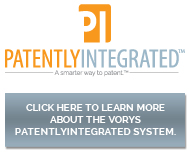Client Alert: The Impact of Coming Changes in European Union Patent Litigation on U.S. Patent Owners’ Enforcement Strategies
For some savvy patent owners, enforcing patent rights through European Union (EU) courts has been a valuable tool in their efforts to extract value from their patent portfolios, whether those strategies focus on market exclusivity or monetization. The reasons include significant cost savings in comparison to U.S. litigation, the relative speed of certain EU jurisdictions and the perception that certain of the EU courts are decidedly patent friendly. 
Current EU Regime
An entity seeking patent protection in the EU may prosecute patent applications through the European Patent Office (EPO), but patents themselves must be “nationalized” in individual EU countries in order to be enforceable. So, too, enforcement of patents through the courts must be done on a country-by-country basis.
The juxtaposition of the EU’s common market and the country-specific patent enforcement regime has elevated forum shopping in EU patent litigation to an art form. This is because although patent infringement decisions by a court in, say, the United Kingdom, are only enforceable in that country, they can have significant economic impact in other EU countries. For instance, if a U.S. company’s EU distributor is based in the U.K., an injunction entered against that distributor will disrupt the U.S. company’s distribution throughout the EU.
Examples of known differences among the courts of different EU countries in terms of patent enforcement will illustrate why forum shopping is rampant in the EU. In Germany, for instance, the patent litigation regime is thought to be decidedly favorable to patent owners. There are two predominant reasons for this: First, infringement and validity are decided in different German courts, and the courts addressing infringement claims usually move faster than the courts handling invalidity claims. As a matter of common sense, this means a patent owner has a pretty good chance of getting an injunction before the defendant can seek to invalidate the patent at issue. Second, German infringement litigation is generally relatively inexpensive in part due to the fact that there is no discovery. This means that the patent owner must have marshaled all necessary infringement evidence before filing suit, though.[1]
The courts of the EU countries can offer advantages to companies whose strategies focus on extracting money from their patent portfolios as opposed to market exclusivity. This is because, unlike the U.S., EU countries do not require patent owners to compete with defendants to be entitled to an injunction. The ability to exclude infringers from markets can provide patent owners with significant leverage in license negotiations. Furthermore, it bears mention that the EU has a “loser pays” litigation system.
The Unified Patent Court
The EU is preparing to institute a Unified Patent Court (UPC), which in theory will allow for unitary enforcement of patents throughout the EU. No official launch for the UPC has been set, but commentators suggest that the system may become provisionally effective in the spring of 2018. There are various challenges that may delay implementation of the UPC, however, not the least of which is Brexit. Moreover, at this point it is not certain which EU countries will elect to participate in the UPC; for instance, it appears that Spain will not participate.
Assuming the obstacles to launching the UPC are eventually surmounted, the following are some of the more notable features of that court:
- Judgments, including injunctions, will be enforceable among all of the participating countries.
- “First instance” court proceedings (akin to U.S. trial courts) are to be concluded in approximately one year.
- Limited discovery (i.e., production of documents) will be allowed.
- Defendants will be permitted to assert invalidity counterclaims.
Litigation in the UPC appears likely to look somewhat more like U.S. patent litigation than has been the case with the separate national courts throughout the EU. One can expect that the cost litigation via the UPC will be more expensive than in most of the national courts in the EU, although it’s too early to predict the magnitude of the difference.
The launch of the UPC will increase opportunities for forum shopping, at least for a limited period of time. The legislation adopting the UPC provides for a seven year transitional period during which litigants will be able to choose between the UPC and the existing national courts. After that transitional period all patent litigation involving participating countries will be in the UPC.
U.S. patent owners interested in enforcing their portfolios would be well advised to consider whether enforcing European counterparts to their patents may provide a cost-effective weapon in their enforcement efforts. To be sure, that can be a complex analysis, which will become more complex when the UPC opens for business.
The author wishes to thank Rainer Böhm and Mark Andres of Eisenfűhr Speiser, Bremen, Germany, for their insights on the topics addressed in this article.
[1] By contrast, a company worried about being sued for infringement can file an aptly-named “torpedo” action in the notoriously slow Italian courts seeking a declaration of non-infringement, which divests the other national courts of the EU from entertaining infringement litigation on the subject patent.

